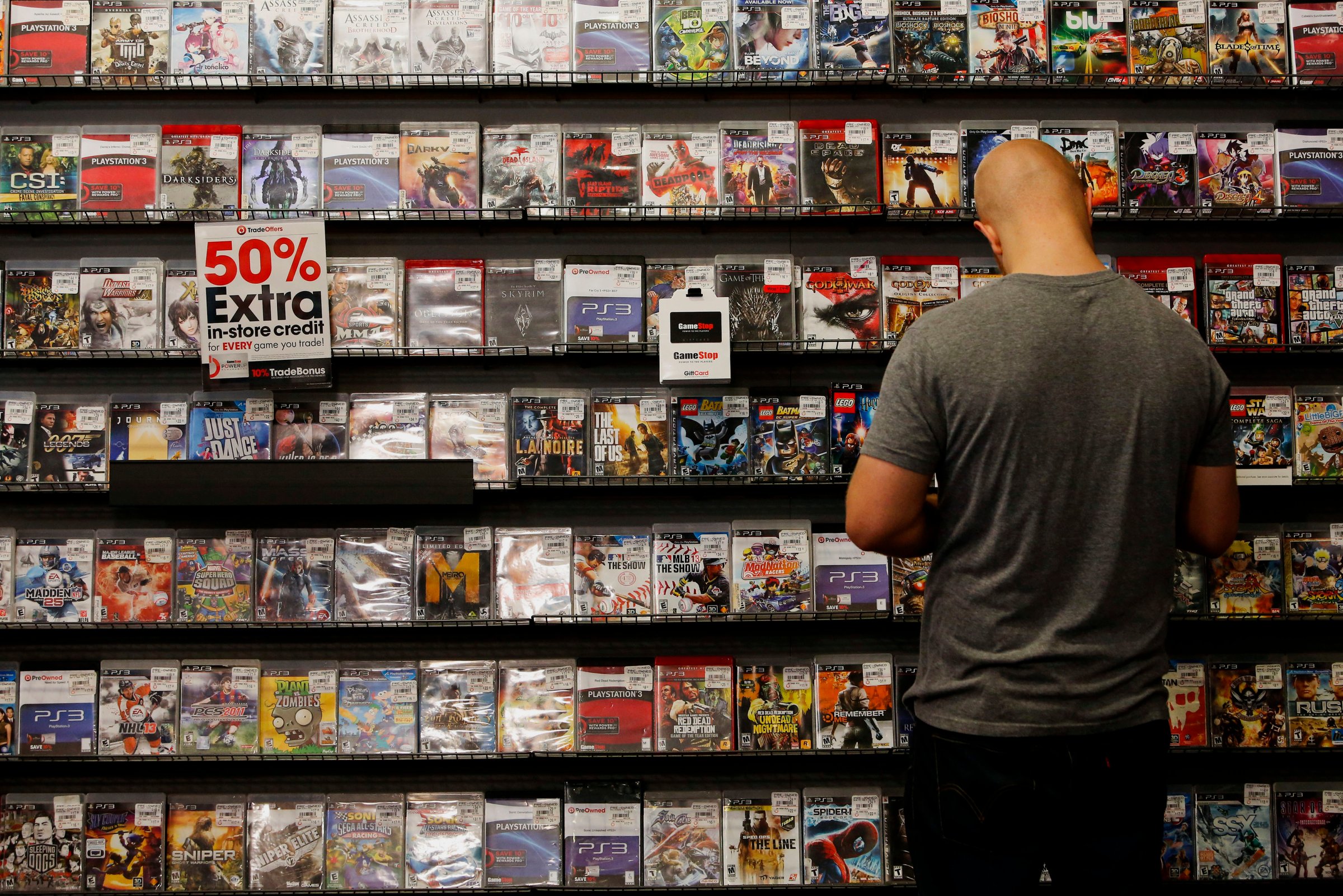
GameStop won’t go gently into that good, all-digital night: the company says it plans to shutter between 120 and 130 of its retail game stores worldwide by the close of its current fiscal year (which I believe ends in May, so we’re talking more or less immediately), while at the same time opening hundreds of mobile and Apple-related retail stores.
130 stores is a drop in a very large bucket — one that comprises 6,457 GameStop stores in all worldwide. Closing 130 amounts to just 2 percent of that number, but you might argue it’s an unusually significant and symbolic 2 percent, because it happens to be part of something GameStop CEO Paul Raines describes as “GameStop 3.0.”
GameStop 3.0, according to GI.biz, which covered Raines’ address at GameStop’s 2014 Investor Day on Wednesday, is “a new phase of the company’s lifespan that will see it aggressively expand its footprint into gaming-adjacent tech fields” — which is just a really long way of saying “Hey, we’re diversifying!” (What were GameStop’s 1.0 and 2.0 by the way? I assume “new games” and “used games,” respectively.)
Or put more aptly, “Hey, we’re further diversifying!” GameStop’s been in explore-and-expand mode since the mid-1990s. When I worked for the company (long, long ago), before it was called GameStop and through the bankruptcy proceedings that led to the name change, it had well under 1,000 stores. After stabilizing, paring back its lowest performing stores and merging with EB Games, it then went on an international brand-purchasing spree that eventually wound things up to its current whopping store total: GameStop today has over 6,600 stores worldwide when you factor its other computer-related retail businesses.
In 2000, it bought FuncoLand, which nabbed it a moderately popular magazine that might otherwise have shuttered along with Computer Games, Computer Gaming World, EGM², GamePro and the lot, but which now — thanks in large part to GameStop’s promotions and Power Up Rewards membership perks — ranks third largest in the U.S. by circulation (and that’s among all magazines, not just game rags). In 2011, the company bought Brad Wardell’s Impulse digital distribution service in hopes of competing with Steam, and of course the company’s been buying and selling used games for as long as I can remember, a practice that’s accounted for a majority of its gross profits for years.
But as Gamasutra’s Matt Matthews noted a year ago, used games as a component of brick-and-mortar revenue are a dwindling and irreplaceable resource. If you’re a PC gamer, you’re probably purchasing most or all of your games online. If you own a PS4 or Xbox One, you’re increasingly likely to do so. Insert obligatory nod to smartphones and tablets and micro-consoles and handhelds and the impact they’re having on retail software sales. Not that any of this is news to GameStop: I’d bet my life the company’s been predicting and obsessively planning for this transition for years.
All of which explains Raines’ GameStop 3.0 strategic overtures, which he says will include opening another 200 to 250 of the company’s Spring Mobile stores (wholly GameStop-owned wireless/mobile stores that sell AT&T products exclusively, currently totaling over 200 in the U.S.), adding 20 to 25 of its Simply Mac stores (GameStop purchased the Apple-exclusive retailer in 2013 — they have 23 locations today) and adding 100 to 150 of its Cricket locations (AT&T-brand-owned prepaid wireless stores franchised to companies like GameStop and Radio Shack — GameStop opened 31 last November, and Dallas Morning News says GameStop’s also been selling Cricket pre-paid wireless service in about 100 stores in Dallas and Los Angeles). According to GI.biz, Raines added that before any of these expansions, GameStop is “the third-largest and fastest-growing AT&T retailer in the US.”
In other words, if GameStop can make good on these so-called “gaming-adjacent tech fields,” it has not just a future but a bona fide bright one, despite the inevitable downturns in retail game sales (new or used). The only other question I have, and that no else seems to be asking, but which seems pertinent to me given the obvious trajectories here, is how much longer a company shifting away from games is going to be able to call itself GameStop.
MORE: The History of Video Game Consoles – Full
More Must-Reads from TIME
- Inside Elon Musk’s War on Washington
- Why Do More Young Adults Have Cancer?
- Colman Domingo Leads With Radical Love
- 11 New Books to Read in February
- How to Get Better at Doing Things Alone
- Cecily Strong on Goober the Clown
- Column: The Rise of America’s Broligarchy
- Introducing the 2025 Closers
Write to Matt Peckham at matt.peckham@time.com